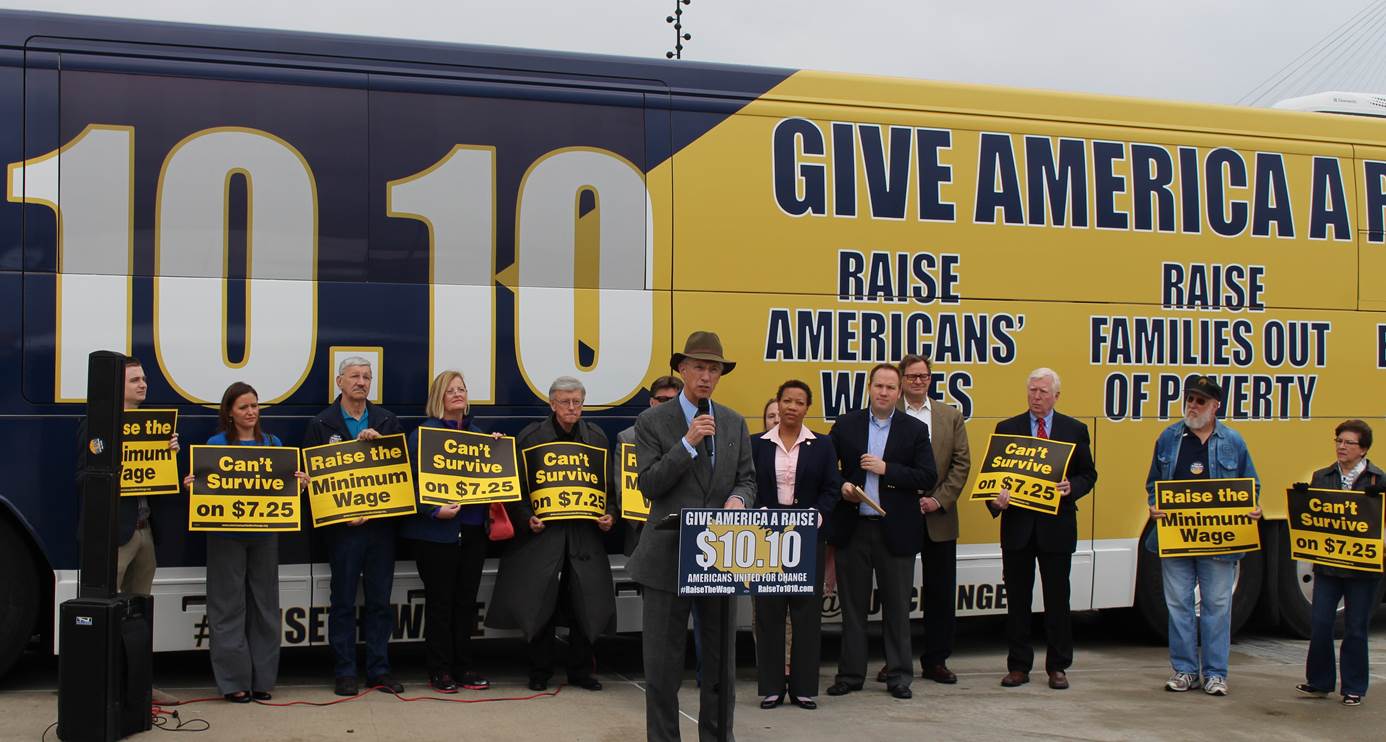Senate Candidates’ Minimum Wage Views Fall Along Partisan Lines
OMAHA, Neb. – Democrat Dave Domina says there’s something wrong when people toil away at full-time jobs but still live in poverty.
Domina, a candidate for the U.S. Senate in Nebraska, supports raising the nation’s federal minimum wage.
“It makes sense to me that the minimum wage … should be equal to, at least, what we define as poverty,” Domina said.
He is the only major Senate candidate in Nebraska who favors a minimum wage hike.
All four of the leading Republican contenders said they are opposed to the idea. All four — Shane Osborn, Ben Sasse, Sid Dinsdale and Bart McLeay — said they think it would cost the nation jobs.
The debate over the minimum wage has taken center stage in Congress as the president and Democrats push for an increase, saying that it would lead to a stronger economy by giving lower-waged employers more cash to spend. Republicans counter that it would hurt the nation’s lowest-paid workers because, they say, employers reduce their workforce to cover the increase in labor costs.
President Barack Obama indicated recently that he would like to see the minimum wage set at $9 an hour — a $1.75 increase. He is expected to make a push on the minimum wage Tuesday in his State of the Union address.
The minimum wage was established during the Great Depression, at 25 cents an hour in 1938. (It applied only to workers involved in interstate commerce.)
The current minimum wage is $7.25, or about $15,000 a year for full-time work. If adjusted for inflation, workers who made the federal minimum wage in 1968 would be making $10.50 an hour today.
Each state has the right to establish its own minimum wage. Currently 21 states have minimum wages higher than the federal rate. Nebraska is one of 20 states whose minimum wage mirrors the federal rate.
Five states have no minimum wage, while four have set rates lower than the federal rate (although they are required to follow the federal rate).
The four Nebraska GOP candidates all said that the way to boost salaries in the nation was not to raise the minimum wage but to boost the economy.
“There will be some small number of folks who will get a slight pay raise, but there will be a whole bunch of people who lose their jobs,” said Sasse, president of Midland University.
McLeay, an Omaha attorney, said he does not believe many people on minimum wage are heads of their families. Many are young people or others working second jobs, he said.
“There have been studies that show the vast majority of workers on minimum wage are not the breadwinners of the family but are providing secondary or third income,” McLeay said.
Dinsdale, whose family owns Pinnacle Bank in Nebraska, said the issue is not particularly relevant in Nebraska because the state’s economy is doing well and there are few minimum wage jobs in the state.
“It’s almost a moot point here in Nebraska because you almost can’t hire anyone at minimum wage,” he said.
Osborn, a former state treasurer, said he believes that not only would people lose their jobs, but consumers also would have to pay more to cover businesses’ labor costs.
“It’s proven that the increase to employers would be passed on to consumers,” he said.
For his part, Domina said he does not think paying people a few more dollars an hour would require employers to reduce their workforce.
He said there is something wrong with the system if companies rely on minimum wage jobs to remain competitive.
“I think the Republicans’ primary argument is that ‘people who are making significantly more don’t want to pay it,’ ” Domina said.

